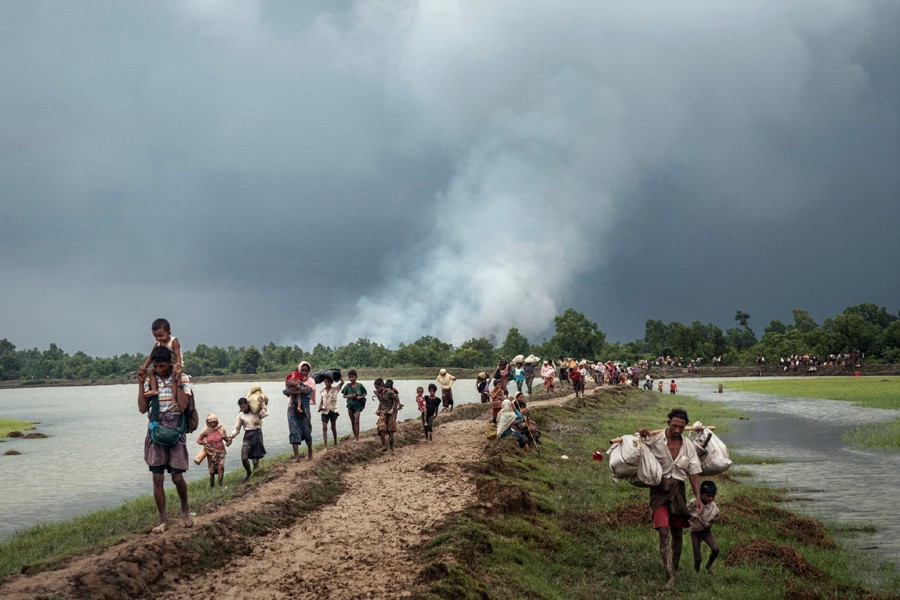The United Nations' highest court is ruling Friday on whether to proceed with a landmark case that accuses Myanmar's rulers of genocide against the country's mainly Muslim Rohingya minority.
The International Court of Justice is set to deliver its decision on Myanmar's claims that the Hague-based court does not have jurisdiction and that the case filed by the tiny African nation of Gambia in 2019 is inadmissible.
If judges reject Myanmar's objections, they will set the stage for court hearings airing evidence of atrocities against the Rohingya that rights groups and a UN probe say amount to breaches of the 1948 Genocide Convention. In March, US Secretary of State Antony Blinken said that violent repression of the Rohingya population in Myanmar amounts to genocide, reports AP.
Amid international outrage at the treatment of the Rohingya, Gambia filed the case with the world court alleging that Myanmar is breaching the genocide convention. The nation argued that both Gambia and Myanmar are parties to the convention and that all signatories have a duty to ensure it is enforced.
Lawyers representing Myanmar argued in February that the case should be tossed out because the world court only hears cases between states and the Rohingya complaint was brought by Gambia on behalf of the Organisation of Islamic Cooperation.
They also claimed that Gambia could not bring the case to court as it was not directly linked to the events in Myanmar and that a legal dispute did not exist between the two countries before the case was filed.
Gambia’s Attorney General and Justice Minister Dawda Jallow insisted in February that the case should go ahead and that it was brought by his country, not the OIC.
“We are no one’s proxy,” Jallow told the court.
The Netherlands and Canada are backing Gambia, saying in 2020 that the country “took a laudable step towards ending impunity for those committing atrocities in Myanmar and upholding this pledge. Canada and the Netherlands consider it our obligation to support these efforts which are of concern to all of humanity.”
Myanmar’s military launched what it called a clearance campaign in Rakhine state in 2017 in the aftermath of an attack by a Rohingya insurgent group. More than 700,000 Rohingya fled into neighboring Bangladesh and Myanmar security forces have been accused of mass rapes, killings and torching thousands of homes.
In 2019, lawyers representing Gambia at the ICJ outlined their allegations of genocide by showing judges maps, satellite images and graphic photos of the military campaign. That led the court to order Myanmar to do all it can to prevent genocide against the Rohingya. The interim ruling was intended to protect the minority while the case is decided in The Hague, a process likely to take years.
The ICJ case was complicated by last year's military coup in Myanmar. The decision to allow the Southeast Asian nation's military-installed government to represent the country at the February hearings drew sharp criticism. A shadow administration known as the National Unity Government made up of representatives including elected lawmakers who were prevented from taking their seats by the 2021 military coup had argued that it should be representing Myanmar in court.
The International Court of Justice rules on disputes between states. It is not linked to the International Criminal Court, also based in The Hague, which holds individuals accountable for atrocities. Prosecutors at the ICC are investigating crimes committed against the Rohingya who were forced to flee to Bangladesh.


